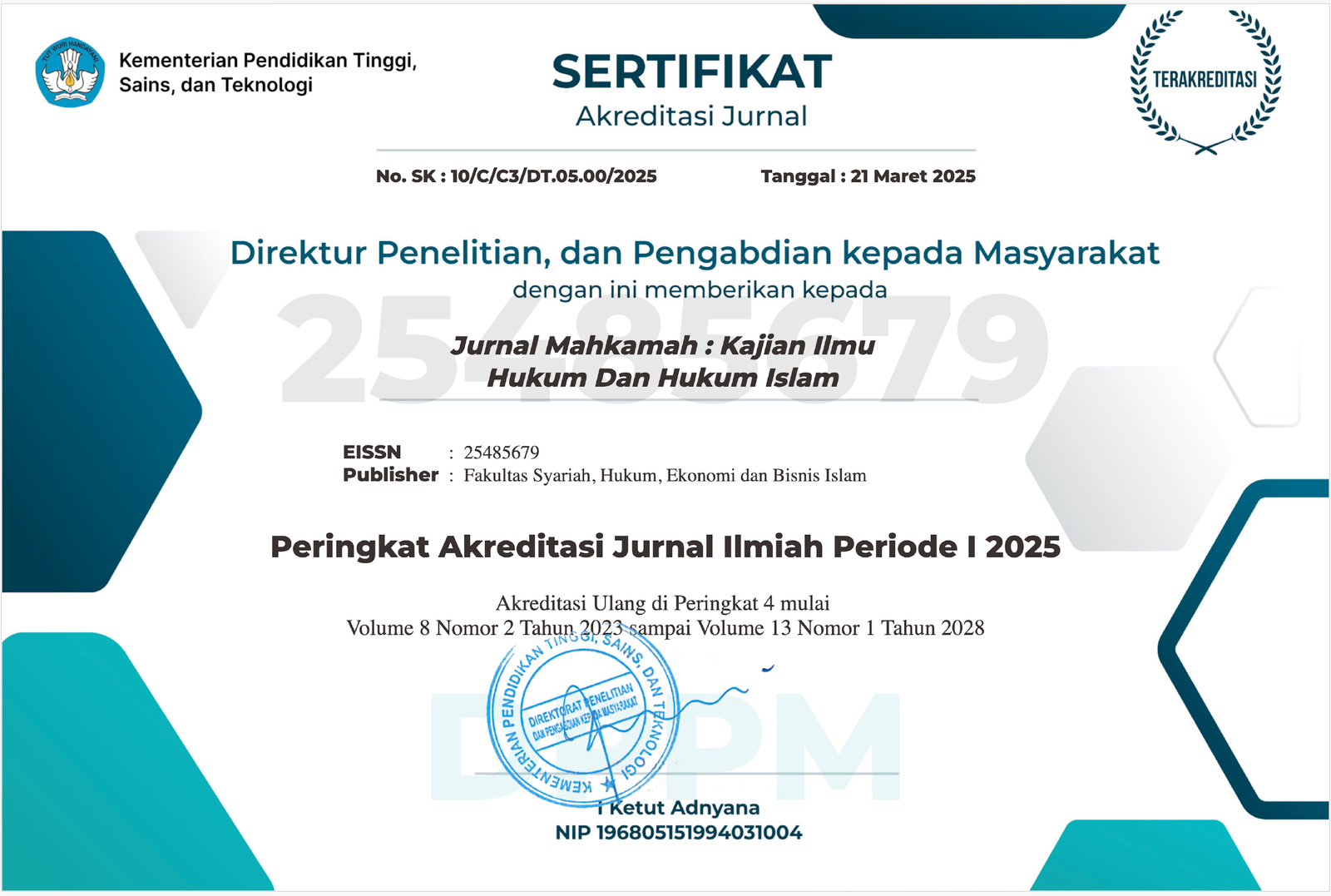Formulation of the Proposed Regional Regulation (Raperda) on Islamic Boarding Schools in Salatiga City after the Ratification of Law No. 18 of 2019 concerning Islamic Boarding Schools in the Era of Regional Autonomy
DOI:
https://doi.org/10.25217/jm.v6i2.2006Keywords:
Regional Autonomy, Education Autonomy, Islamic Boarding School, Raperda PesantrenAbstract
This research discusses the formulation of the proposed Raperda in Salatiga City which until now has not published the Raperda Pesantren as a mandate from Law no.18 of 2019 concerning Islamic Boarding Schools. This research is expected to be a guide for the Salatiga city government in making the Raperda Pesantren so that it does not conflict with the spirit of the issuance of the Pesantren Law. This study uses an empirical juridical method by analyzing the attribution of the Islamic boarding school law to the local government in a juridical context and conducting interviews with data sources related to the non-accommodation of the regional regulation on boarding schools in Salatiga City. The results of this study conclude two things. First, the Raperda of Islamic Boarding Schools in Salatiga City has not been accommodated because the Salatiga City Government believes that Islamic boarding schools are religious matters that cannot be autonomous, or are not educational matters. Second, the formulation of the proposed Raperda in Salatiga City covers 3 main things, namely: 1) the involvement of the Salatiga City Government in the provision of education by facilitating cottages or dormitories and mosques or prayer rooms; 2) the involvement of the Salatiga City Government in the Islamic boarding school's missionary function; and 3) the involvement of the Regional Government in the function of community empowerment.
Downloads
Published
How to Cite
Issue
Section
License
This work is licensed under a Creative Commons Attribution-ShareAlike 4.0 International License.
Authors retain copyright and grant the Jurnal Mahkamah : Kajian Ilmu Hukum Dan Hukum Islam right of first publication with the work simultaneously licensed under a Creative Commons Attribution License (CC BY-SA 4.0) that allows others to share (copy and redistribute the material in any medium or format) and adapt (remix, transform, and build upon the material) the work for any purpose, even commercially with an acknowledgment of the work's authorship and initial publication in Jurnal Mahkamah : Kajian Ilmu Hukum Dan Hukum Islam.
Authors are able to enter into separate, additional contractual arrangements for the non-exclusive distribution of the journal's published version of the work (e.g., post it to an institutional repository or publish it in a book), with an acknowledgment of its initial publication in Jurnal Mahkamah : Kajian Ilmu Hukum Dan Hukum Islam.
Authors are permitted and encouraged to post their work online (e.g., in institutional repositories or on their website) prior to and during the submission process, as it can lead to productive exchanges, as well as earlier and greater citation of published work (See The Effect of Open Access).









